-
 Art of Wellness Acupuncture & Traditional Chinese Medicine (TCM)11704 Wilshire Blvd, Suite 295, Los Angeles, CA, 90025
Art of Wellness Acupuncture & Traditional Chinese Medicine (TCM)11704 Wilshire Blvd, Suite 295, Los Angeles, CA, 90025
myartofwellness@gmail.com310-451-5522 Office Hours
MonClosedTue7:30 am --4 pmWed7:30 am --4 pmThu7:30 am -- 4 pmFri7:30 am -- 4 pmSat7:30 am -- 4 pmSunClosedOur office opens from Tuesdays to Saturdays 7:30 am to 4 pm, will be closed on Memorial day, Independent day, Labor day, Thanksgiving day, Christmas and New year.
-
Recent Posts
- How to Treat Dysautonomia With Acupuncture and TCM
- How to Treat Myofascial Pain Syndrome With Acupuncture and TCM
- How to Treat Costochondritis With Acupuncture and TCM
- How to Treat Ankylosing Spondylitis With Acupuncture and TCM
- How to Treat Gastroparesis With Acupuncture and TCM
- How To Treat Sleep Apnea With Acupuncture and TCM
- How To Treat Baker’s Cyst With Acupuncture and TCM
- How to Treat Sinusitis With Acupuncture and TCM
- How To Treat Sjogren’s Disease With Acupuncture and TCM
- How to Treat Raynaud’s Syndrome With Acupuncture and TCM
- How to Treat Autoimmune Disorders With Acupuncture and TCM
- Chinese New Year 2024 Year of the Dragon
- Sign up to receive news and updates and get my free report:“The Top 10 Reasons to Try Acupuncture”

Autoimmune Disease
How To Treat Addison’s Disease With Acupuncture and TCM
By Qineng Tan, L.Ac,. Ph.D. and Xiaomei Cai, L.Ac., Ph.D.

Always tired? Craving salty foods? Thirsty all the time? Adrenal fatigue? Addison’s disease is a condition in which the adrenal glands do not produce enough cortisol. Acupuncture and TCM can help to balance the adrenal hormones and relieve adrenal insufficiency symptoms.
Addison’s, also known as adrenal insufficiency, happens because of damage to the adrenal glands. What do the adrenal glands do? The adrenals are small glands that are located just above the kidneys. They produce hormones, including cortisol and aldosterone. These hormones are important in metabolic functions, and are also a big part of our stress response.
Cortisol is released from the adrenal glands into the bloodstream, and it aids in the body’s use of macronutrients: protein, carbohydrates, and fats. Cortisol regulates blood pressure and blood sugar levels, and it also gives us an extra energy boost when we need it because of sudden and/or stressful circumstances.
In many cases, Addison’s disease is the result of an autoimmune disorder. In these cases, the immune system mistakenly attacks the adrenal cortex, the part of the adrenal glands that produce cortisol and aldosterone.
In some parts of the world, tuberculosis infection is still common, and tuberculosis can lead to damage of the adrenal glands.
Other infectious diseases like HIV/AIDS, or fungal infections like histoplasmosis, can cause adrenal damage.
People with other autoimmune diseases may be more susceptible to developing Addison disorder, too. For example, Addison’s disease can happen concurrently with:
- Dermatitis herpetiformis
- Graves disease
- Type 1 diabetes
- Pernicious anemia
- Hashimoto’s disease, thyroiditis
- Vitiligo
- Myasthenia gravis
Some people may develop Addison’s disease in addition to having hypothyroidism or diabetes.
Addison’s Disease Symptoms
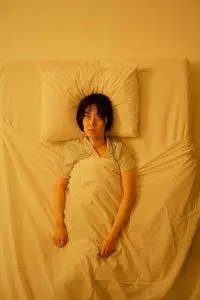
In the early stages, Addison’s disease symptoms may feel like a flu, causing fatigue, muscle weakness and joint pain. But as the illness progresses, these symptoms may become chronic.
Adrenal insufficiency symptoms include:
- Extreme fatigue
- Dehydration
- Loss of appetite
- Unexplained weight loss
- Darkening of skin in areas, hyperpigmentation, darkening of gums
- Blue-black color to skin around mouth, nipples, or genitals
- Low blood pressure, hypoglycemia
- Dizziness
- Fainting, light-headedness
- Craving salt
- Abdominal pain
- Nausea, vomiting
- Diarrhea
- Joint pain
- Muscle pain
- Depression
- Irritability
- Loss of body hair
- Sexual problems
- Irregular periods, no menstrual periods, missed periods
Primary ovarian insufficiency (POI), has been found to be more common among those with Addison’s disease, with about 1 in 10 women with Addison’s going through early menopause (before 40).
In extreme situations, Addison’s sickness can lead to kidney failure, or going into shock. Early warning signs of adrenal crisis include nausea, fever, headache, and confusion. This sudden worsening of Addison’s disease is known as Adrenal crisis, and requires immediate medical attention.
Medical Treatment for Addison’s Disease
Accurate diagnosis and appropriate treatment are crucial for individuals with Addison’s disease.
A doctor will typically diagnose Addison’s disease through blood tests. These tests measure the levels of cortisol and aldosterone in the blood. Low levels of these hormones are indicative of adrenal insufficiency.
If blood tests suggest adrenal insufficiency, an ACTH stimulation test may be performed. In this test, synthetic adrenocorticotropic hormone (ACTH) is administered, and cortisol levels in the blood are measured. Patients with Addison’s disease typically do not show a significant increase in cortisol after receiving ACTH.
The primary treatment for Addison’s disease involves hormone replacement therapy. Patients are prescribed synthetic cortisol (usually hydrocortisone or prednisone) to replace the insufficient natural cortisol production.
If aldosterone production is also insufficient, patients may be prescribed fludrocortisone to replace this hormone. This helps regulate salt and water balance in the body.
Dosage and frequency of cortisol replacement are adjusted to meet the specific needs of each patient. Patients often need to take multiple doses of medication daily to mimic the body’s natural cortisol rhythms.
These steroid medications can cause side effects like dizziness, nausea, and changes in the menstrual cycle.
Patients with Addison’s disease require ongoing medical supervision to monitor hormone levels, adjust medication as needed, and ensure that they are responding well to treatment.
Acupuncture offers an adjunct or alternative treatment for Addison’s disease that can help regulate hormones.
Can Acupuncture Help Addison’s Disease?
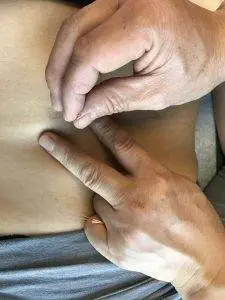
According to TCM theory, the kidneys are responsible for storing and controlling not only Qi, but “essence,” which represents a person’s foundational life force energy.
Addison’s disease, or adrenal insufficiency, is usually related to some variation of kidney deficiency according to TCM diagnosis.
Possible TCM diagnosis for Addison’s might be:
- kidney qi deficiency
- kidney yang deficiency
- kidney yin deficiency
- liver yin deficiency
- spleen blood deficiency
- spleen yang deficiency
By listening to a person’s range of symptoms, an acupuncturist will determine which pattern is emerging, and choose acupuncture points to bring energy and strength to the affected organs.
Moxibustion treatment is also an excellent modality to help build up Kidney Qi and blood.
Chinese herbs can help nourish and support kidney Qi.
For some people, acupuncture treatment and herbal supplements can be a good alternative treatment for Addison’s disease. For others, TCM treatment for adrenal insufficiency can be used as an adjunct to conventional treatment, and help to alleviate side effects of steroids, like dizziness, nausea, or menstrual changes.
Acupuncture Near Me for Addison’s Disease in West Los Angeles
Acupuncture can help address autoimmune diseases that are difficult for conventional medicine to treat. TCM modalities, including moxibustion and herbs, can provide a holistic treatment that works on the root level, restoring proper function of the immune system, as well as helping to relieve all kinds of symptoms.
Addison’s disease requires an individualized approach. Dr. Tan and Dr. Cai at Art of Wellness Acupuncture have over three decades of experience helping patients overcome all types of autoimmune disorders. Art of Wellness was recently named one of the top acupuncture practices in Los Angeles. Please do not hesitate to call us.
*This article is for education from the perspective of Traditional Chinese Medicine only. The education provided by this article is not approved by FDA to diagnose, prevent, treat and cure human diseases. It should not stop you from consulting with your physician for your medical conditions. Traditional Chinese Medicine is based on Qi, which is an invisible force that usually cannot be observed by modern science. Because science focuses on testing ideas about the natural world with evidence obtained through observation, these aspects of acupuncture can’t be studied by science. Therefore acupuncture and Chinese herbs are often not supported by double-blind, randomized trials, and they are considered alternative medicine therapies in the United States.
How to Treat Vitiligo With Acupuncture and TCM
by Qineng Tan, L.Ac., Ph.D. and Xiaomei Cai, L.Ac., Ph.D.

White patches on skin, white spots on face? Graying hair? White patches of skin can be a sign of Vitiligo. Vitiligo is a chronic autoimmune disease that affects the melanin, or pigment, in the skin. Acupuncture and TCM offer a holistic, complementary vitiligo treatment that can help with repigmentation.
Vitiligo occurs when the pigmentation of your skin changes, with white patches on face or other parts of the body. This usually happens because of an autoimmune disorder that affects the cells that create pigment in the skin, hair, and eyes.
Vitiligo can show up in different ways. Possible signs of vitiligo include:
- Lighter patches of skin on face, arms, hands, and/or feet, white patches on skin
- Patches can be pink, tan, or white
- Loss of pigmentation on lips and/or inside mouth
- Loss of pigmentation on or inside the nose
- White patches of skin are itchy sometimes, usually when they are spreading
- Premature graying hair, hair turning gray
- A streak of white hair on scalp develops
- Eyelashes turn white, or eyebrows turn white
- Eye color changes, may affect eyesight
- Inner ear problems, can lead to hearing loss
- Anxiety and depression due to changes in appearance
While vitiligo is not considered harmful, these changes in outward appearance can have a serious impact on the way a person feels about themselves. Vitiligo disease treatment with acupuncture and TCM can help not only with repigmentation, but can help address the underlying causes of autoimmune disease, and mental health concerns, all at the same time.
What Causes Vitiligo?
White patches on skin happen when cells called melanocytes, which produce pigment, either stop functioning correctly or die.
Medical research has not yet determined exactly why some people get vitiligo, but it is generally considered to occur because of an autoimmune condition. When a person has an autoimmune disorder, their immune system mistakenly attacks certain cells in the body. In the case of vitiligo, the immune system attacks the melanocytes.
Some people notice that their vitiligo starts developing after getting a particularly bad sunburn. A regular burn, or exposure to caustic chemicals can trigger the development of vitiligo, as can a bad cut or scrape.
Stress can trigger vitiligo, or make it worse. Both physical stress and emotional stress may often precede either the initial onset of vitiligo, or accelerate the spread of patches of vitiligo on the skin.
Risk factors for Vitiligo

People of all ages and ethnicities can have vitiligo. In about half of cases, vitiligo begins to appear in childhood or before the age of 20.
If other people in your family have vitiligo, or other autoimmune diseases, then there is a greater chance that you will have it.
People who have other autoimmune disorders may have a higher risk of experiencing vitiligo. These autoimmune conditions include:
- Lupus
- Hyperthyroidism
- Hashimoto’s disease
- Graves disease
- Psoriasis
- Rheumatoid arthritis
- Type 1 Diabetes
- Anemia
- Addison’s disease
Having a specific type of moles on your skin called halo nevi can increase your risk for vitiligo. Those are moles that have a white ring, or “halo,” around them.
Having melanoma or non-Hodgkin lymphoma can also increase your risk for vitiligo, as can going through immunotherapy for melanoma.
Even though vitiligo is not considered dangerous, it is important to seek out a proper diagnosis and treatment, because having one autoimmune condition can sometimes lead to developing other autoimmune diseases.
Types of Vitiligo
Vitiligo will develop differently for each individual. Different kinds of vitiligo are categorized according to where they appear. Types of vitiligo include:
- Generalized vitiligo: most common type, causes macules to appear in various places on the body
- Segmental vitiligo: only affects one side of your body or one area, such as the face or hands.
- Mucosal vitiligo: affects the mucous membranes of mouth and/or genitals
- Focal vitiligo: rare type where the macules develop in a small area
- Trichrome vitiligo: shows up as a bullseye shape with a white center, a lighter area, and an area of natural skin tone.
- Universal vitiligo: rare condition that causes more than 80% of skin to not have pigment
Vitiligo Treatment
A doctor will diagnose vitiligo by taking a family history, testing for other autoimmune diseases, checking the skin with a black light, which will make the patches easier to detect, and probably taking a small skin biopsy to check for melanocytes, or lack thereof.
The main aim of conventional vitiligo disease treatment is to slow the spread of the condition, and hopefully to help the skin regain its pigment by helping to encourage the growth of melanocytes.
Immunosuppressant medications can help to slow or halt the spread of vitiligo. Calcineurin inhibitors are a specific type of immunosuppressants that may be prescribed for vitiligo, as well as for other autoimmune disease rash, such as lupus rash.
However, this type of vitiligo treatment requires continued use; when people stop taking the medications, the condition will usually come back and continue to spread.
There are various types of vitiligo therapy that may help skin regain its normal pigmentation. These include:
- Light therapy
- Topical steroid creams
Some dermatology specialists perform surgical procedures to help with repigmentation, but these are not recommended if the condition is still spreading, or if a person tends to develop scarring.

About 50% of vitiligo cases begin in childhood or adolescence. Vitiligo can be particularly difficult and even traumatic for young people. While the treatment methods are similar for children with vitiligo (corticosteroids, phototherapy, and/or immunosuppressants), it is especially important that young patients also receive emotional and mental health support during treatment.
While medical vitiligo therapies help in some cases, other people may not see much improvement. None of these treatments address the root cause of vitiligo. Acupuncture and TCM help by working on several levels, to help restore normal functioning of the immune system, help with repigmentation of the white patches of skin, and to help address issues like anxiety and depression, as well.
Can Acupuncture Help Vitiligo?
Traditional Chinese Medicine (TCM) has been used to treat vitiligo for centuries. TCM treatment for vitiligo was first mentioned in the medical text, The Yellow Emperor’s Classic of Internal Medicine, over 2500 years ago.
In TCM, vitiligo is referred to as “Bai Dian Feng,” which means something akin to “white patches wind.” In TCM, many skin and immune conditions are considered to be related to wind as a pathogenic force that moves through the body.
The development of this autoimmune condition that affects the skin’s appearance can occur due to a particular imbalance, or a combination of factors. Some of the TCM diagnostic patterns that pertain to vitiligo include:
- Liver wind with Kidney deficiency
- Spleen and Stomach deficiency
- Qi and Blood deficiency and/or stasis
- Too much internal heat
Depending on accompanying symptoms, your acupuncturist will observe which organ systems need nourishing and/or clearing, and will tailor a treatment plan for each individual case. A combination of acupuncture treatment and herbal supplements will be recommended to help address your condition.
Acupuncture needles, applied to specific points, can help to improve circulation and blood flow to areas of the skin and activate cells to help restore natural skin color. Other points will be chosen to help move Qi and strengthen the liver and kidneys, as well as reducing overall inflammation and boosting immune function.
Topical herb creams made from traditional Chinese herbal remedies can be effective for helping to stimulate melanin production. Chinese herb formulas designed to be taken internally as a tea will work to nourish the liver and kidneys, dispel wind and clear heat.
Acupuncture Near Me for Vitiligo
Acupuncture and herbs can be used either as an alternative or adjunct treatment for vitiligo. TCM treatment will also work for vitiligo in children, and can be particularly helpful as a gentle modality that does not cause unwanted side effects.
Drs. Tan and Cai at Art of Wellness Acupuncture in West L.A. have over 35 years of experience working with patients with autoimmune skin conditions of all kinds. Art of Wellness was recently named one of the best acupuncture providers in Los Angeles. If you or someone you know is suffering with vitiligo, please do not hesitate to contact us.
*This article is for education from the perspective of Traditional Chinese Medicine only. The education provided by this article is not approved by FDA to diagnose, prevent, treat and cure human diseases. It should not stop you from consulting with your physician for your medical conditions. Traditional Chinese Medicine is based on Qi, which is an invisible force that usually cannot be observed by modern science. Because science focuses on testing ideas about the natural world with evidence obtained through observation, these aspects of acupuncture can’t be studied by science. Therefore acupuncture and Chinese herbs are often not supported by double-blind, randomized trials, and they are considered alternative medicine therapies in the United States.
How to Treat Hashimoto’s Disease With Acupuncture and TCM
By Qineng Tan, L.Ac., Ph.D. and Xiaomei Cai, L.Ac., Ph.D.

Goiter, enlarged thyroid? Tired all the time, feeling weak, sensitive to cold? Constipation, weight gain, hair loss? These can all be hypothyroidism symptoms. Hashimoto’s disease is an autoimmune disorder that causes low thyroid symptoms. Acupuncture and TCM can offer an alternative hypothyroidism treatment and address Hashimoto’s thyroiditis symptoms.
Recent data shows that hypothyroidism is fairly common. In the U.S., where it was previously thought that about 5% of the population may have some signs of hypothyroidism, more recent research shows that that number is over 10%. While people of all ages can have signs of hypothyroidism, it is most common among women over 50.
The thyroid and the pituitary gland work to release various thyroid hormones that control metabolism and other processes. The primary thyroid hormones are thyroxine (T3) and triiodothyronine (T4); Thyrotropin (TSH) is the hormone that stimulates the production of T3 and T4.
The normal TSH level for most adults is in the range of 0.27 – 4.2 uIU/mL. Lower TSH levels are often a sign that the body is producing too much thyroid hormone, which leads to symptoms of hyperthyroidism, which is often due to Graves disease, which is also an autoimmune thyroid disorder.
When TSH levels are high, there is probably too little thyroid hormone, or low thyroid hormone levels. Hypothyroidism is considered “overt” when a person has high TSH levels and low T4 levels. A person is considered to have subclinical hypothyroidism when their TSH is elevated, but T4 is in the normal range.
Hashimoto’s disease, also known as chronic thyroiditis, is the most common cause of hypothyroidism, but because it is a slowly progressing autoimmune disorder, it can take years for symptoms for thyroid to show up.
Hypothyroidism causes, or risk factors for Hashimoto, include: genetics, changes in hormones during pregnancy, and the presence of other autoimmune diseases. It is possible to have Hashimoto’s thyroiditis and also have another autoimmune condition, such as Rheumatoid arthritis, Celiac Disease, Lupus, or Type 1 Diabetes.
In some cases, hypothyroidism can be caused by an iodine deficiency in the diet. This is rare in the U.S., though, and iodine supplementation is not helpful in cases of hypothyroidism that are not caused by a lack of iodine.
Acupuncture and TCM are excellent modalities for treating all kinds of autoimmune disorders, because they work holistically to treat both the root causes of the problem, and hypothyroid symptoms.
Top 10 Hashimoto Disease Symptoms
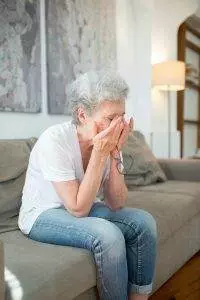
Signs of thyroid issues can take a long time to become severe enough that people notice them and seek diagnosis and treatment. Hypothyroidism symptoms can just seem like “normal” fatigue or other signs of aging.
Sometimes when people visit their primary care doctor, and they run a typical panel of blood tests, thyroid hormone levels are still in the normal range, so no treatment is recommended.
However, hypothyroidism symptoms typically come on gradually, and will likely get worse with time, as the disease progresses.
Hashimoto’s Disease Symptoms include:
- Fatigue, sluggishness, tired all the time
- Drowsiness, sleepy all the time
- Increased sensitivity to cold, feel cold all the time
- Dry skin, brittle nails, hair loss, puffy face
- Muscle pain, muscle stiffness, muscle weakness, joint pain, stiff joints
- Swollen thyroid, enlarged thyroid gland, goiter, swollen tongue
- Memory problems, difficulty concentrating, foggy head
- Change in menstrual cycle, irregular menstruation, heavy bleeding during period
- Weight gain
- Depression, mental health problems
If hypothyroidism is not treated, it can lead to serious complications. These may include: heart problems or cardiovascular diseases, like irregular heartbeat (arrhythmia) and high cholesterol.
Hashimoto’s can cause problems with sexual function, libido, and fertility in both men and women.
In rare cases, people with untreated low thyroid levels can develop Myxedema. Myxedema is the term for advanced, severe hypothyroidism, which can lead to:
- Low blood pressure
- Low heart rate
- Low blood sodium levels
- Low blood oxygen levels
- Low body temperature (hypothermia)
- Mental confusion
In extreme cases, Myxedema can lead to a health crisis in which a person may go into shock, a coma, or seizures. Myxedema crisis requires immediate emergency care.
Hypothyroidism can develop slowly, with minimal symptoms. However, it is important to get proper diagnosis and treatment for Hashimoto’s thyroiditis. As time goes on, untreated hypothyroidism can lead to more complications.
Medical Treatment for Hashimoto’s Disease
Getting a diagnosis for Hashimoto’s disease will usually involve a series of blood tests. As an autoimmune disorder, Hashimoto involves the production of antibodies that mistakenly attack healthy cells. In the case of Hashimoto’s thyroiditis, an antibody test may show that the immune system is making TSO antibodies. Thyroid peroxidase (TSO) a protein that is vital to the production of thyroid hormone.
In addition, blood tests will show if there is elevated TSH and/or low levels of T4. If a person has symptoms, or an enlarged thyroid gland, and high TSH levels, then a diagnosis of Hashimoto’s may be made, whether or not the T4 levels are low.
An ultrasound can indicate that there is swelling or inflammation in the thyroid gland.
Hypothyroidism Medication
The usual treatment for Hashimoto’s disease is hormone replacement. Levothyroxine, under the brand names Levoxyl, or Synthroid, is usually given in pill form. This hypothyroid medication mimics the action of T4 hormone.
For many patients, medications for low thyroid will help to stabilize the TSH and T4 levels, and symptoms will improve. However, for some people, the continued autoimmune disorder process continues to cause symptoms, even when thyroid hormone levels are in the normal range.
In these cases, doctors may recommend surgery. A thyroidectomy involves the removal of some or all of the thyroid gland. After a thyroid surgery, a person will need to continue taking thyroid hormone replacement medication, as they will not produce any without the thyroid gland.
Acupuncture and TCM treatment offer an alternative or adjunct therapy for Hashimoto’s disease, which can help improve immune function and address symptoms.
Can Acupuncture Help Hashimoto’s?

Acupuncture works by harmonizing the Qi (life force energy) of the organ systems of the body. When Qi is out of balance, then some bodily processes happen in excess, and others are deficient. A TCM practitioner observes and listens carefully to each person’s individual experience of symptoms to discover which organs are out of balance.
In the case of hypothyroidism and Hashimoto’s, deficiency of Qi and blood can be building up over a long period of time, and gradually begin to impact organs: mainly, the kidneys, spleen, and heart.
For a while, while the condition is still what conventional medicine considers to be subclinical hypothyroidism, the spleen Qi is weak, and causes some symptoms, like weakness and fatigue.
Then, as the situation progresses, the kidney Qi is affected, and more symptoms begin to occur. Yang Qi is not able to warm the organs enough, so dampness and cold begin to accumulate. This causes symptoms like constipation, swollen joints, brain fog, and memory problems.
Chronic kidney and liver qi deficiency can cause menstrual problems, and infertility.
If the problem continues, then the heart is affected, too, and cardiovascular symptoms begin to arise, like palpitations, respiratory problems, and low blood pressure.
The acupuncturist deduces from the pattern of symptoms which organs are affected, and then uses acupuncture treatment, herbs, and other modalities like cupping or moxibustion to bring more energy to depleted areas and help nourish them.
Can TCM cure hypothyroidism? Not exactly, but research has shown that acupuncture is a safe and effective treatment for thyroid disorders, whether it is used as an alternative medicine for Hashimoto’s disease, or as an adjunct therapy.
Case studies have shown that regular acupuncture treatment can help stabilize thyroid hormone levels, slow the progression of the autoimmune disease, reduce symptoms, and improve quality of life.
For those who are trying to conceive and are struggling with infertility issues due to thyroid disorders, acupuncture can be a holistic treatment that helps balance hormones and improve fertility. Acupuncture treatment may help prevent miscarriage due to autoimmune conditions.
Acupuncture can also be helpful for pain management after a thyroidectomy procedure.
Acupuncture Near Me for Hashimoto’s Disease – West Los Angeles Area
Acupuncture is an excellent modality for helping to treat many autoimmune diseases and thyroid conditions, including Graves disease, hyperthyroidism, and chronic fatigue syndrome. TCM can also help with menopause and perimenopausal symptoms, which often occur concurrently with hypothyroidism in women over 50. Acupuncture can also help with all kinds of mental health problems like depression and anxiety, which may be related to underlying physical conditions.
*This article is for education from the perspective of Traditional Chinese Medicine only. The education provided by this article is not approved by FDA to diagnose, prevent, treat and cure human diseases. It should not stop you from consulting with your physician for your medical conditions. Traditional Chinese Medicine is based on Qi, which is an invisible force that usually cannot be observed by modern science. Because science focuses on testing ideas about the natural world with evidence obtained through observation, these aspects of acupuncture can’t be studied by science. Therefore acupuncture and Chinese herbs are often not supported by double-blind, randomized trials, and they are considered alternative medicine therapies in the United States.
How to Treat Graves Disease With Acupuncture and TCM
By Qineng Tan, L.Ac., Ph.D. and Xiaomei Cai, L.Ac., Ph.D.
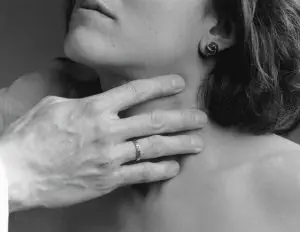
Goiter? Bulging eyes? Red eyes, eye pain? Feeling anxious and irritable? Hand tremor? These can all be signs of Graves disease, an autoimmune disorder that causes hyperthyroidism. Acupuncture and TCM can help relieve Graves disease symptoms.
Graves disease is an autoimmune disorder in which the immune system creates antibodies that make the thyroid produce too much thyroid hormone. This is known as an “overactive thyroid,” or hyperthyroidism.
Many different conditions can lead to excessive levels of thyroid hormone, but Graves disease is the most common cause of hyperthyroidism. About 80% of people with hyperthyroidism have Graves disease. Graves disease tends to affect women more often than men.
A person is more likely to have Graves disease if other people in their family have it, or have Hashimoto’s disease. People who have Graves may also have other autoimmune disorders, like Rheumatoid arthritis, autoimmune gastritis, Type 1 diabetes, or vitiligo (an autoimmune skin condition).
As with other autoimmune diseases, there is still limited understanding from a medical research perspective about what exactly causes Graves disease. Graves disease requires attention, as it can lead to serious health issues.
What Is Overactive Thyroid?
The thyroid gland is located in the front of the throat and is responsible for producing hormones that control metabolism, or how the body converts food into energy. The main thyroid hormones are thyroxine (T3) and triiodothyronine (T4).
The thyroid hormones impact many processes in the body, including your metabolic rate (how you use calories), how quickly food passes through your digestive tract, your heart rate, maintenance of body temperature, and the production of new cells to replace dying ones.
Thyroid function can have a big impact on your weight and digestion. Thyroid hormone imbalances can cause skin problems, vision problems, and problems with menstrual cycles, libido, and fertility.
Acupuncture can be an effective treatment for managing hyperthyroidism symptoms.
Top 10 Graves Disease Symptoms
Graves disease most typically begins to show up in midlife, between the ages of 30 and 50. Signs of Graves disease may develop slowly over several weeks or months. Each individual’s experience with symptoms may be different; you may have some of the following symptoms, but not others.
Common symptoms of Graves disease include:
- Rapid weight loss
- Increased appetite
- Diarrhea, more frequent bowel movements
- Rapid heartbeat, heart palpitations
- Feeling shaky, hand tremor, tremor in fingers
- Clammy skin, sweating, feeling hot
- Insomnia, trouble sleeping
- Goiter, enlarged thyroid gland on the front of the throat
- Changes in menstrual cycle
- Muscle weakness
About a third of people with Graves disease will also develop Graves ophthalmopathy, or thyroid eye disease. This happens due to inflammation and swelling of the muscles and tissues around the eyes. This can happen in both eyes, or just one eye.
Graves disease eye symptoms can include:
- Bulging eyes
- Eyelids don’t close all the way
- Puffy eyes, swelling around the eyes
- Eye pain, eye pressure
- Sensitive to light
- Eye irritation, gritty eyes
- Double vision
- Blurred vision
- Red eyes
- Trouble moving the eyes
Treatment for Graves Disease
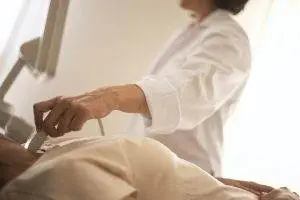
Diagnosis of Graves disease will usually involve blood tests to check for elevated thyroid hormones and the presence of antibodies that stimulate thyroid hormone production. A thyroid uptake scan will show how much iodine your thyroid absorbs; high absorption of iodine is a sign of Graves disease. A Doppler ultrasound may also be done to see if there is extra blood flow to your thyroid gland.
Graves disease is considered a chronic condition with no cure. However, medications and other interventions can help control thyroid hormone levels. Antithyroid medications like Tapazole block the overproduction of T3 and T4. Side effects of these medications can include itchy skin rashes, nausea, hair loss, muscle pain or joint pain, headaches, dizziness, and other problems. Some people can develop serious liver problems.
Radioiodine therapy, or radioactive iodine ablation (RAI), is a treatment for Graves disease that involves taking radioactive iodine, which, as it is absorbed by the thyroid, will destroy the overactive cells of the thyroid gland. Many patients who undergo this treatment will end up being hypothyroid (low thyroid levels) and will have to have thyroid hormone replacement treatment. RAI treatment can affect the salivary glands, causing dry mouth and sometimes a loss of the ability to taste.
A thyroidectomy is a surgical option, which involves the removal of some or all of the thyroid gland. This may be recommended if a person has a very enlarged goiter, or thyroid gland. As with RAI, this may require that a person takes thyroid hormone replacement in the future. There is a risk that the vocal cords can suffer damage during this procedure, which may affect a person’s voice long-term.
Acupuncture and TCM offers an alternative or adjunct treatment for Graves disease that can help address the root cause of hyperthyroidism as well as help to manage symptoms.
Can Acupuncture Help Graves Disease?
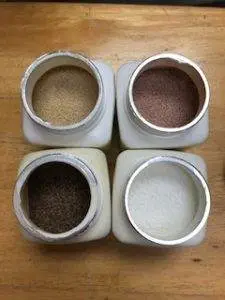
According to TCM theory, hyperthyroidism and Graves disease are related to imbalances in Qi: typically, yin deficiency is the result of excessive yang energy. Stagnation of phlegm in the liver meridian around the throat area can also have an impact on the thyroid gland.
Herbal formulations that help address liver qi stagnation can help relieve many of the symptoms associated with Graves disease, including palpitations, increased heart rate, and insomnia. Other Chinese herb treatments can help to reduce thyroid hormone levels and even the size of an enlarged thyroid.
One study that compared patients who were treated with acupuncture and herbs versus those who were treated with antithyroid medications. Over 95% of the group who received TCM treatment had positive outcomes, while 73% of the group who were given medications saw positive improvement.
Another independent study showed a similar result, with some patients given acupuncture plus conventional medications, while another group received medication only. The acupuncture group had a 96% positive outcome, while the medication only group had a 64% success rate.
One case study of a woman who had tried antithyroid medications but had suffered from hives as a side effect had good results after taking TCM herbs. Her thyroid levels returned to normal and remained in the normal range even after she discontinued the herbs.
An overview of research shows that acupuncture and herbs have the potential to help patients with Graves disease and hyperthyroidism by lowering thyroid hormone levels, relieving stress, improving sleep, and relieving symptoms like tremors and muscle weakness, as well as IBS-like symptoms of diarrhea.
A TCM practitioner can also give personalized advice regarding dietary and other lifestyle changes that can further help to alleviate symptoms and strengthen Qi.
Acupuncture Near Me for Graves Disease in West Los Angeles
Acupuncture and herbal medicine can be excellent modalities for hard-to-treat disorders, because TCM offers a different lens through which we can see health issues like autoimmune disorders and hormonal imbalances. TCM treatments can strengthen a person’s health on the deepest levels, while also relieving a wide variety of symptoms. Acupuncture can be very helpful for thyroid disorders like Graves disease and hyperthyroidism, as well as Hashimoto’s thyroiditis (Hashimoto) and hypothyroidism.
*This article is for education from the perspective of Traditional Chinese Medicine only. The education provided by this article is not approved by FDA to diagnose, prevent, treat and cure human diseases. It should not stop you from consulting with your physician for your medical conditions. Traditional Chinese Medicine is based on Qi, which is an invisible force that usually cannot be observed by modern science. Because science focuses on testing ideas about the natural world with evidence obtained through observation, these aspects of acupuncture can’t be studied by science. Therefore acupuncture and Chinese herbs are often not supported by double-blind, randomized trials, and they are considered alternative medicine therapies in the United States.
How to Treat POTS With Acupuncture and TCM
By Qineng Tan, L.Ac., Ph.D. and Xiaomei Cai, L.Ac., Ph.D.

Do you often feel shaky, like you’re fainting, or experience dizziness, especially when you’re getting up from sitting down or lying down? Do you feel like you have a rapid heartbeat, or shortness of breath? Postural orthostatic tachycardia syndrome, known as PoTS syndrome, or POTS, is a condition that causes unstable blood pressure when changing positions. Acupuncture and TCM can help relieve dizziness and other symptoms of POTS.
Postural tachycardia syndrome (or postural orthostatic tachycardia syndrome) is a chronic disorder related to the autonomic nervous system that causes people to experience dizziness and increased heart rate when they move into an upright position; this is known as orthostatic intolerance, which is a type of dysautonomia.
POTS syndrome is fairly common, affecting up to 3 million people in the U.S. POTS occurs more often in people assigned female at birth, and often first shows up during the teenage years.
The most common symptom of POTS is feeling light-headed when changing your position from sitting to standing, or when getting up from lying down.
Whenever we have been sitting or lying down for a while, blood pools in the lower parts of the body. When we get up, the autonomic nervous system starts a series of actions to move blood back up into the top half of the body. This involves squeezing blood vessels, and releasing adrenaline and norepinephrine, to make the heart beat faster.
When a person has POTS, more blood tends to pool in the legs, and the nervous system process doesn’t cause the normal, quick response from the blood vessels, so more hormones are released, which can cause the person’s heart rate to increase, and a dizzy, faint feeling.
Medical science has not yet discovered exactly what causes POTS, but there are different characteristics that allow for categorizing these different types of POTS syndrome:
- Neuropathic POTS – damage to small fiber nerves that control blood vessel constriction in the abdomen and limbs
- Hyperadrenergic POTS – when a person has elevated levels of norepinephrine
- Hypovolemic POTS – when a person has unusually low blood levels
- Secondary POTS – when POTS symptoms are related to another condition that causes neuropathy, such as Lyme disease, diabetes, or autoimmune disorders like Lupus or celiac disease.
While POTS is not rare, it can be difficult to get a diagnosis, because the criteria can be vague, and the symptoms can so often be related to other conditions, or just seem “normal.”
For many people, POTS is truly debilitating and can have a serious, negative impact on daily life. It can also contribute to feelings of anxiety and depression. Acupuncture and TCM offer an adjunct or alternative treatment for POTS that can help with dizziness, irregular heartbeat, digestive problems, muscle weakness, migraines, trouble sleeping, and other symptoms, all at the same time.
Top 10 POTS Symptoms
The primary symptoms of POTS are related to the cardiovascular system: rapid heartbeat, and dizziness. However, there can be many other POTS symptoms.
- Irregular heart rate, rapid heart rate, fast heartbeat, chest pain, heart palpitations
- Dizziness, especially when standing up or getting up from lying down, feeling faint
- Breathing problems: hyperventilating, bronchial asthma, shortness of breath
- Constipation, diarrhea, nausea, abdominal pain
- Muscle weakness, muscle pain, tremor
- Skin rash, flushed face, flushing, sweating
- Migraine headaches
- Cognitive issues, brain fog, difficulty concentrating
- Trouble sleeping
- Frequent urination, nocturia
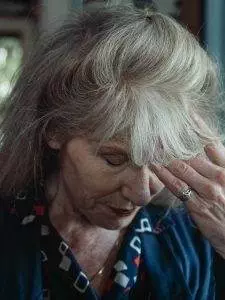
Other symptoms of POTS may include: tinnitus (ringing in the ears), blurred vision, red or purple appearance of the legs when standing up, and a “jittery” feeling or general nervousness.
As with many syndromes, different people will experience different combinations of symptoms. While dizziness and rapid heartbeat are the signs most commonly associated with POTS, many people with POTS will also suffer from abdominal pain and gastrointestinal problems, perhaps without realizing there is a correlation.
POTS symptoms may resemble many other conditions, such as:
- Chronic fatigue syndrome, ME/CFS
- Graves disease
- Other heart conditions that involve tachycardia
- Anemia
- Stroke
- Epilepsy
- Adrenal fatigue
- Drug use
- Eating disorders
- Benign paroxysmal positional vertigo
- Ménière’s disease
Because POTS is often misunderstood or misdiagnosed, many patients will be offered medications to manage headaches, vertigo, or depression, which may not offer much relief.
Medical Treatment for POTS
As there is no definitive cure for POTS, Postural orthostatic tachycardia syndrome treatments typically aim to manage symptoms and improve quality of life.
Dietary modifications are a fundamental component of POTS management. Adequate daily fluid intake is crucial. A diet that includes plenty of salt helps maintain blood volume, aiding blood flow to vital organs. Patients are typically advised to avoid alcohol and carefully monitor caffeine intake, as these substances can exacerbate symptoms.
Exercise is gradually introduced, often starting in reclined or horizontal positions, with the goal of increasing exercise tolerance over time. Physical therapy helps retrain the autonomic nervous system, enhancing blood circulation.
Compression garments can help reduce blood pooling, and specific postures while sitting or sleeping may alleviate symptoms. Identifying triggers such as prolonged sitting, heat, or certain drugs allows for better symptom control. Regular monitoring of blood pressure and pulse, along with adequate sleep hygiene, aids overall well-being.
While no single pharmacological solution is universally effective, some medications may be prescribed based on individual symptoms. These may help to improve blood volume, aid sodium retention, reduce heart rate, and enhance blood vessel constriction.
While POTS symptoms may intermittently improve with medications and lifestyle modifications, the underlying cause of POTS may persist. Acupuncture and TCM treatment can provide a holistic solution for individuals living with POTS, which may help to address the root causes of this syndrome.
Can Acupuncture Help POTS?
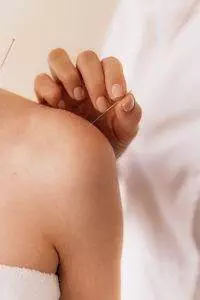
POTS is a kind of Dysautonomia; this is a general term that describes conditions that involve malfunctioning of the autonomic nervous system. This causes people’s bodies to have problems with regulating the sorts of functions that are typically automatic, like the beating of the heart, circulation of blood, breathing, and temperature control.
Western medicine offers some treatments that can help address individual symptoms of dysautonomia, but it does not have a way of treating the root of the problem. It can be difficult to get proper treatment, because people who suffer from POTS and other kinds of dysautonomia often seem reasonably healthy, and their complaints—dizziness, headaches, mental health problems—seem vague.
Acupuncture and TCM have been used to treat these kinds of problems for centuries. Acupuncture treatment can help provide positive effects on the subtle communications of the nervous system, as well as the heart rate, and physiological symptoms of anxiety. According to TCM theory, several organ systems may be involved and need support: not only the heart, but also the kidneys or spleen.
Studies have shown that acupuncture for dysautonomia can help relieve symptoms like heart palpitations, insomnia, and digestive problems.
A qualified acupuncturist is also well-versed in nutrition and can offer more detailed information regarding dietary and lifestyle changes that can help each individual patient. Your TCM provider will spend time learning more about you, so that they can offer personalized advice.
Acupuncture Near Me for POTS in West Los Angeles
TCM and acupuncture can help people with all types of autoimmune disorders, nerve disorders, and conditions involving fatigue and dizziness that may be difficult to solve with conventional methods. Acupuncture works on a deeper, more subtle level to help address complex syndromes. If you are regularly experiencing trouble with feeling light-headed, having unexplained headaches and sleep problems, it may be time to seek a more holistic alternative treatment.
*This article is for education from the perspective of Traditional Chinese Medicine only. The education provided by this article is not approved by FDA to diagnose, prevent, treat and cure human diseases. It should not stop you from consulting with your physician for your medical conditions. Traditional Chinese Medicine is based on Qi, which is an invisible force that usually cannot be observed by modern science. Because science focuses on testing ideas about the natural world with evidence obtained through observation, these aspects of acupuncture can’t be studied by science. Therefore acupuncture and Chinese herbs are often not supported by double-blind, randomized trials, and they are considered alternative medicine therapies in the United States.